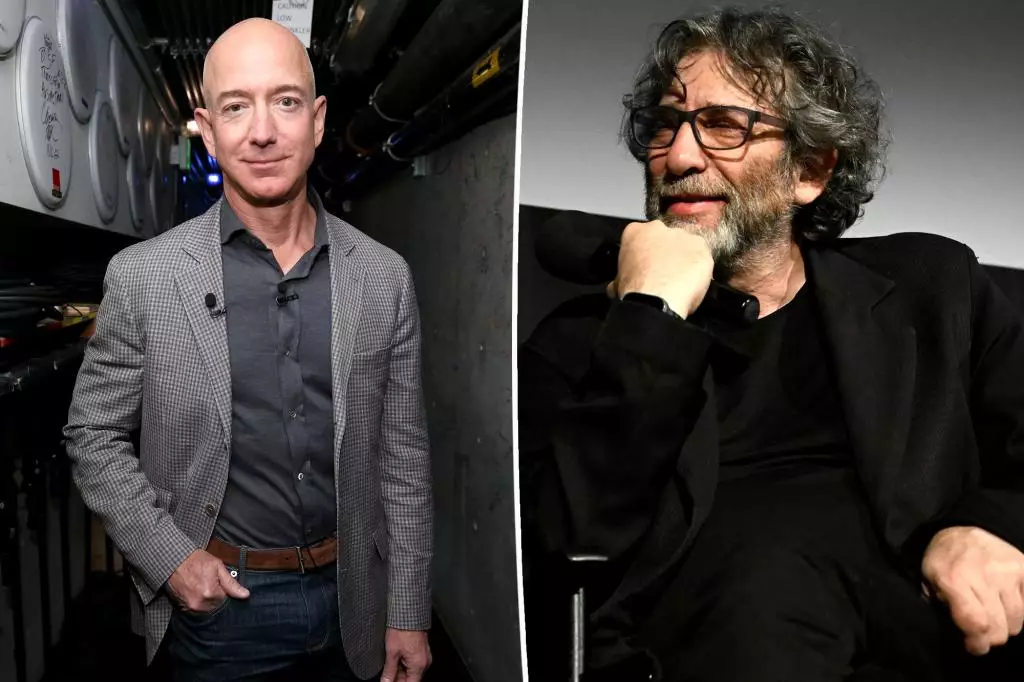The literary world has been thrown into disarray as Neil Gaiman, a prominent figure in contemporary literature, faces serious accusations that have led to his exclusion from this year’s private Campfire literary retreat. This annual gathering, hosted by Jeff Bezos, has become a sanctuary for elite authors and literary influencers, serving as a place for both collaborative discussions and networking opportunities. However, Gaiman’s expected presence at the event has now been dashed due to increasingly widespread allegations of sexual misconduct against him.
In recent weeks, Gaiman has found himself at the center of a media storm after multiple women came forward with claims that paint a troubling picture of their encounters with the celebrated author. These allegations, detailed in the podcast titled “Master: The Allegations against Neil Gaiman,” involve accounts of non-consensual and degrading sexual experiences. Gaiman has firmly denied these claims and described them as “disturbing,” yet the revelations have raised significant questions about the culture surrounding powerful figures in the literary community.
The controversy has not only disrupted Gaiman’s public engagements but also casts a long shadow over his professional projects. Amazon Prime Video has reportedly put a halt to production on its adaptation of Gaiman’s popular work titled “Good Omens.” Ironically, this title has gained a new layer of significance given the circumstances surrounding Gaiman’s current predicament. To keep the project afloat, Gaiman has offered to step back, highlighting the intense scrutiny and reputational damage that may linger long after the public scandal.
The complexities of these accusations delve deeper into the cultural anxieties surrounding celebrity and power dynamics within artistic circles. Gaiman, once celebrated for works like “The Sandman” and “American Gods,” has not only enjoyed acclaim but also wielded substantial influence within the literary landscape. His former connections to Amazon’s controversial practices concerning authors’ rights further complicate the narrative, as many wonder about the long-lasting effects of these dynamics when intertwined with personal misconduct allegations.
As this situation unfolds, it raises pressing questions about accountability in the creative sphere. Gaiman’s absence from significant literary conversations and retreats may set a precedent for how allegations of misconduct are handled within the community. It signifies a shift wherein authors, regardless of their stature and achievements, are not beyond reproach when it comes to their ethical conduct. As whispers likely circulate at the Campfire retreat regarding Gaiman, this incident may serve to remind the literary world that the price of silence and complicity is too high.
In an era where the discussions of consent and the treatment of individuals within the artistic community are becoming increasingly audible, the literary world must grapple with the implications of such allegations against its icons. The future remains uncertain for Gaiman, and the path forward may shape the literary community’s approach to accountability and its ethical standards.

